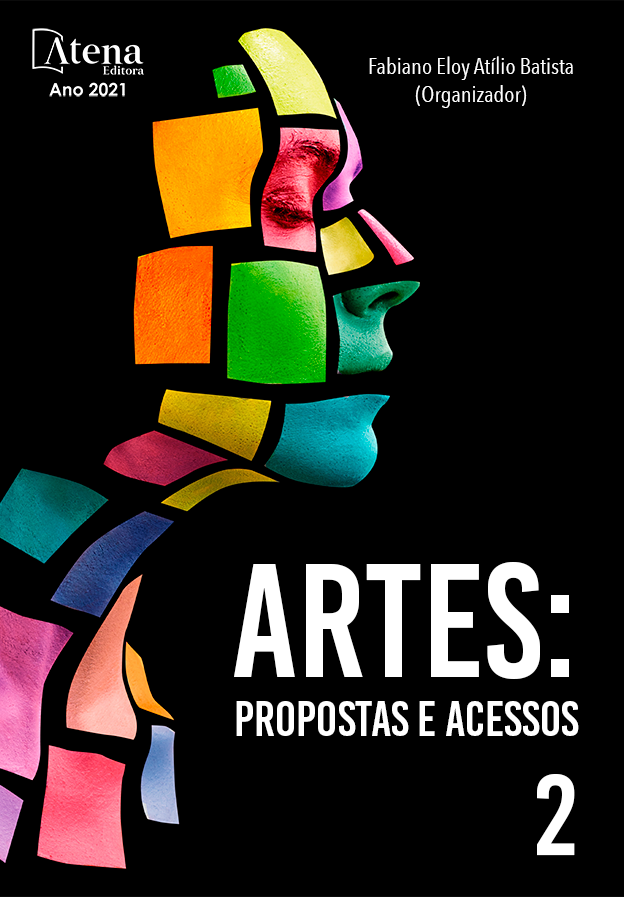
EDUCAÇÃO ESTÉTICA: ATOS ESTRUTURANTES PARA PERCEPÇÃO CRÍTICA DOS FENÔMENOS
RESUMO: O presente artigo tem por propósito discutir a contribuição da Educação Estética no currículo escolar. Desse modo, levantamos a seguinte questão: a educação estética, poderá contribuir para formação sensível, intelectual, moral e crítica dos estudantes? O projeto articulou-se, conforme uma perspectiva de educação estética; a partir dos atos estruturantes como: intuição-percepção, forma-matéria-conteúdo, essência e entendimento, para a compreensão dos fenômenos artísticos e socioculturais. No sentido de investigar e dar essas respostas, o presente estudo, possui um enfoque na Fenomenologia. O método fenomenológico não vai se limitar a uma descrição passiva, o objetivo é desvendar além da aparência. A pesquisa é de natureza bibliográfica, foi realizada a partir das discussões, implicadas na investigação do campo curricular, tal como, campo de estudo do Currículo e Estudos Culturais. O referencial teórico tem aporte em autores como: Husserl (2005), Heidegger (1999), Baumgarten (1993), Kant (1974), Merleau-Ponty (1999), SCHILLER (2002), Ernst Cassirer (2011), dentre outros. Por isso, ao se discutir a importância da Educação Estética no currículo escolar, a proposta é contribuir para que o processo de aprendizagem do estudante, seja significativa diante dos fenômenos. Logo, a importância de intuir e perceber esses fenômenos é um exercício diário de tomar uma posição crítica e construtiva diante do mundo.
EDUCAÇÃO ESTÉTICA: ATOS ESTRUTURANTES PARA PERCEPÇÃO CRÍTICA DOS FENÔMENOS
-
DOI: 10.22533/at.ed.4032123021
-
Palavras-chave: Educação Estética, Currículo, Fenomenologia, Percepção
-
Keywords: Aesthetic Education, Curriculum, Phenomenology, Perception.
-
Abstract:
ABSTRACT: The purpose of this article is to discuss the contribution of Aesthetic Education in the school curriculum. Thus, we raise the following question: can aesthetic education contribute to the sensitive, intellectual, moral and critical formation of students? The project was articulated, according to a perspective of aesthetic education; from the structuring acts as: intuition-perception, form-content, essence and understanding, to the understanding of artistic and socio-cultural phenomena. In order to investigate and give these answers, the present study has a focus on Phenomenology. The phenomenological method will not be limited to a passive description, the objective is to unveil beyond the appearance. The research is of bibliographic nature, it was carried out from the discussions, involved in the investigation of the curricular field, such as, field of study of the Curriculum and Cultural Studies. The theoretical reference has contributions from authors such as: Husserl (2005), Heidegger (1999), Baumgarten (1993), Kant (1974), Merleau-Ponty (1999), SCHILLER (2002), Ernst Cassirer (2011), among others. Therefore, when discussing the importance of Aesthetic Education in the school curriculum, the proposal is to contribute to the student's learning process being significant in the face of the phenomena. Therefore, the importance of intuiting and perceiving these phenomena is a daily exercise of taking a critical and constructive position before the world.
-
Número de páginas: 15
- Leila Maria Camargo
- Rosangela Duarte
- Valério Ramalho da Silva


